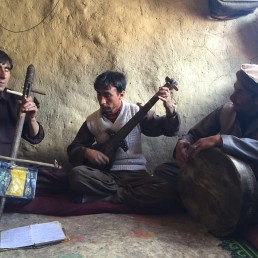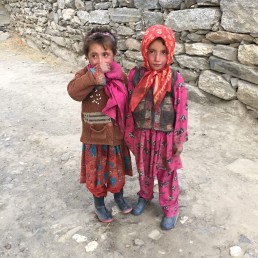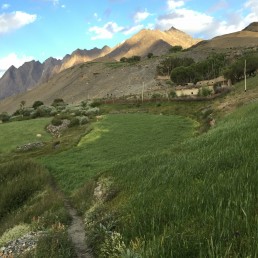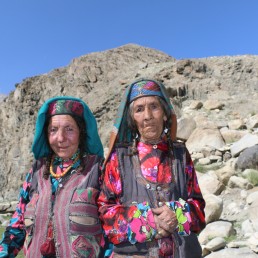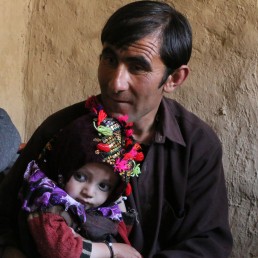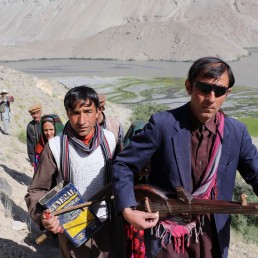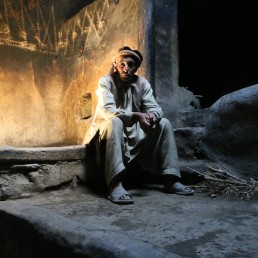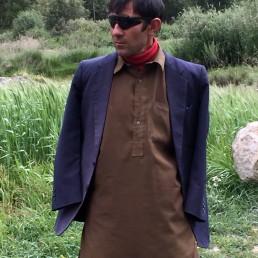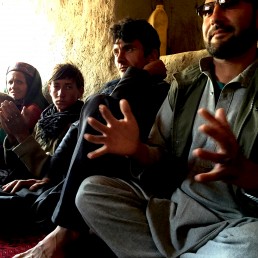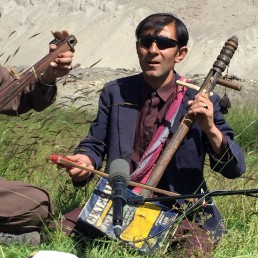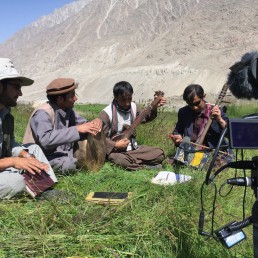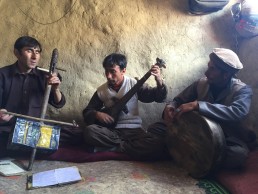Images
Video
Annotated Audio
Wəzi tu ẓ̌ə jonət tu
Daulatsho lives at an altitude of about 10,500 feet in the remote village of Yur in the upper Wakhan of Afghanistan, several days walk from cell phone reception (and even there, the cell towers are across the river in Tajikistan), and electrified for a few hours a day with local hydro-electric power and personal solar panels. Almost no cash employment is available in this village, but as a school teacher he makes about $70 per month from the government. In his mid 40s at the time of this writing, Daulatsho is now the main poet-singer of the Wakhi language in Afghanistan, with disciples in his own village and others.
The story of Daulatsho’s becoming a musician has two key starting points. One is via the history of his mother’s family, tracing back to an ancestor Haji Qimat (Qimat who went on the Hajj) some 300 years ago. Singing was forbidden in his family in that period because they were religious (lit. “those who say prayers”) and Qimat was accompanying the travels of a pīr (spiritual leader). One night he saw a spark of light travel around the bed and disappear. The pīr questioned Qimat about him and he said, “I didn’t see anything.” The pīr pushed him on this and Qimat responded with the proverb “that which is obvious doesn’t need to be explained.” Both the pīr and Qimat understood that this was something godly, and from that day forth, the story goes, God had a found special place in Qimat’s heart. He began to sing qasoid secretly when by himself tending the animals and he carried a tiny rubob, the length of his forearm, under his jacket. Daulatsho traces his own singing of qasoid back through his family hereditarily to Hajiqimat.
As a poet himself, Daulatsho was inspired by the Persian writings of his elder contemporaries Ghulamalikhan and Sozgor, who used to help him, teach him techniques, and suggest improvements. But the critical moment was in 2007 when a festival was organized in the upper Wakhan—this was the second starting point. At that time Daulatsho heard educated Wakhis from Northern Pakistan speak eloquently in their native language and urge those of Afghanistan to create new poetry in it. The Pīr of Qilla Panja (in this case a local political ruler and hereditary community leader of the Wakhi people in Afghanistan) also spoke on Wakhi and urged Daulatsho to compose poetry. During that festival, Daulatsho says he sat down and composed his first Wakhi song, “wəzi tu ẓ̌ə jonət tu,” (annotated in link below to left) in about 20 minutes.
